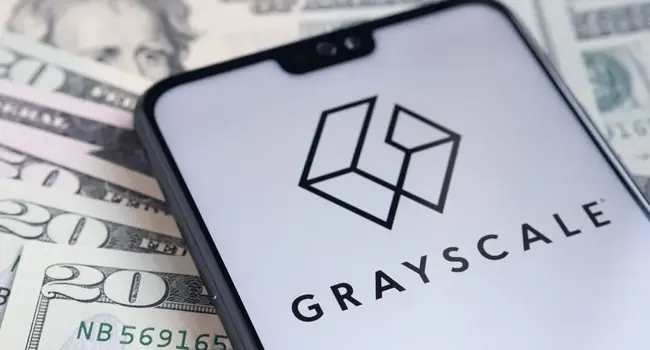Highlights:
- Grayscale has filed confidentially with the SEC to go through an IPO.
- The move aligns with a crypto market rally and regulatory reforms under Trump’s administration.
- Grayscale’s IPO joins a growing list of crypto firms entering public markets.
Grayscale Investments has filed a confidentially requested registration statement with the United States Securities and Exchange Commission (SEC). The filing, submitted in accordance with the JOBS Act, is the initial official move on the path of Grayscale towards going public. Although details of the number of shares and the price range are undisclosed, this move indicates that Grayscale aims to list its stock as soon as the SEC reviews are done.
The filing comes at a time when a new crypto bull market is taking place. Bitcoin recently reached a new record high of 123,090. Following a combination of policy shifts under Trump’s administration and market performance, investor appetite has returned.
JUST IN: 🇺🇸 Grayscale files confidentially for US IPO with SEC. pic.twitter.com/jz23aPeSjL
— Bitcoin Magazine (@BitcoinMagazine) July 14, 2025
Regulatory Tailwinds Fuel Crypto IPO Pipeline
The filing by Grayscale coincides with Crypto Week in Washington, D.C., when lawmakers are considering important legislation on digital assets. The rules governing stablecoins and market structure are some of the questions in policy discussions that may define the future of companies such as Grayscale. Such developments are but an addition to an overall trend, which embraces the idea of crypto being integrated into the traditional financial system.
Such a climate has spurred a rush of crypto businesses planning IPOs. Circle was able to successfully list in June, and shares climbed to almost $190 from under $50. Meanwhile, Gemini, eToro, and Kraken are also headed in the direction of their respective IPOs. With Bitcoin reaching record highs, companies are seizing the opportunity to access public capital markets.
This willingness to engage in discussions in confidential filings by the SEC has eased the IPO process for the digital asset companies. The strategy pursued by Grayscale allows it to sharpen its offer and deal with regulatory responses in a more confidential way. Depending on the market conditions, the company intends to move ahead with its IPO once the SEC is through with the review.
Grayscale Targets Expansion Beyond Trust Products
Grayscale has more than 30 cryptocurrency-based investment products. Its main offerings include the Grayscale Bitcoin Trust (GBTC) as well as the Ethereum Trust (ETHE). The IPO is a new strategic shift in the transformation of product growth to institutional positioning. The success of the listing would increase the credibility and visibility of Grayscale within the capital markets globally.
Earlier this year, Grayscale received regulatory permission to transform its Bitcoin Trust into a spot ETF. The fund currently has more than $21.7 billion in assets. The same conversion process into ETFs was followed by its Dogecoin Trust in February. These developments followed court wrangles with the SEC, particularly on the Digital Large Cap Fund.
The controversy was centered on the delay of the agency in acting on the request of Grayscale to be converted into an ETF. The pace to continue the product evolutions gained strength after Grayscale won a case in a federal court. Now, the IPO is another addition to the ambitions of the firm as it ventures into the public financial markets much further. At a time when U.S. IPO activity is rebounding, Grayscale’s filing shows how crypto companies are aligning with Wall Street. Moreover, IPOs in 2025 have already reached over $15 billion, a steep rise from 2022, according to Renaissance Capital.
Best Crypto Exchange
- Over 90 top cryptos to trade
- Regulated by top-tier entities
- User-friendly trading app
- 30+ million users
eToro is a multi-asset investment platform. The value of your investments may go up or down. Your capital is at risk. Don’t invest unless you’re prepared to lose all the money you invest. This is a high-risk investment, and you should not expect to be protected if something goes wrong.






